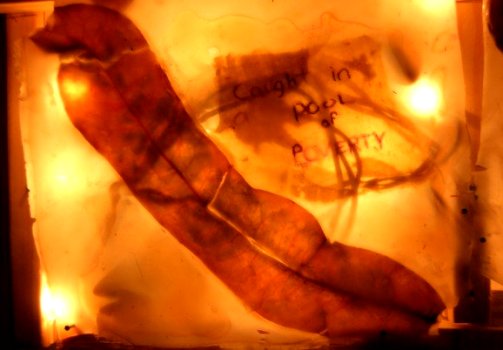By Francisco Donoso
Continued from: Fair Trade and Ethical Buying within the Clothing Industry
Part Two
Cause-marketing”, a strategy that associates the purchasing of a product with fundraising for charitable initiatives or causes reached its eventual summit through U2’s front-man Bono. Together with Gap (ironically enough), Giorgio Armani, Apple, Motorola, American Express, Converse and Bobby Shriver of Debt AIDS Trade in Africa (DATA) introduced the world to “product (RED)”.
The effort aims to advance opportunities for the people of Africa, and to promote HIV/AIDS workplace policies and practices. “Activism is the new chic,” writes Newsweek‘s Jessica Bennett, “and we, the consumers, have become the new activists-saving the world one credit-card transaction at a time.”
Product (RED) has raised about $20 million for the Geneva-based aid organization: The Global Fund to Fight AIDS, TB, and Malaria.

While cause marketing and “socially-conscious” fashion seek to provide message- oriented clothing for the general public, to raise awareness and fundraise humanitarian projects, “ethical” fashion simply consists of garments produced/sold fairly.
The production of ethical clothing is more about the workers and the countries that make the products than the buyers or consumers. Sri Lanka is one of the leaders in this growing trend. The country’s garment factories, which were once similar to sweatshops in Hong Kong and China, have transformed.
Some have even installed automatic cash machines and provided accommodations for workers. The industry label and PR campaign: “Made in Sri Lanka: Garments without Guilt”, is aimed at differentiating Sri Lanka from mounting competition from China and India by producing clothes the ethical way.
Ethical buying codes can be an important way to improve working conditions. In the U.S. the anti-sweat movement is probably the largest student mobilization since Vietnam. Some 200 U.S. colleges and universities have adopted “no-sweat” buying policies. Ethical purchasing codes politicize students, faith-based groups and a new generation of consumers, and influence people to question where their clothing is coming from and whether it’s being traded fairly.
As a result of all the human rights violations caused by sweatshop conditions for workers and the exploitation of children and women in the workforce, people of the global north are demanding justice by dressing responsibly and demanding Fair Trade certification from businesses worldwide.
Its no longer so much about looking right or sporting the trendy fashions, but more about taking control of our personal image and communicating our beliefs. People should continue to challenge popular fashion and demand Fair Trade practices from Transnational Corporations such as Nike, Gap, and Wal-Mart, and take responsibility for what they wear.
Corporate America still needs to buy into the idea of full disclosure of social responsibility practices and this will only happen as companies, consumers, and investors continue the current trend of making social responsibility a priority in production, trade, and purchasing decisions.
 Francisco is currently studying Visual Arts and Anthropology at the State University of New York at Purchase College. He is passionate about compassion and service to the poor, and plans on disappearing somewhere in India after he graduates college to live amongst the “least of these.”
Francisco is currently studying Visual Arts and Anthropology at the State University of New York at Purchase College. He is passionate about compassion and service to the poor, and plans on disappearing somewhere in India after he graduates college to live amongst the “least of these.”
